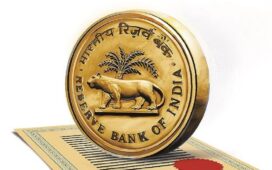A debt consolidation plan might be your ticket out of the maze, transforming countless monthly dues into a single repayment while potentially saving you interest. With debt consolidation loans in Singapore, you could simplify your finances, but can they truly deliver relief, or is it a risk-laden path? This guide helps you with expert advice, insights, a starter roadmap, tools, and a cautionary breakdown of common pitfalls to help you decide if consolidation is your move forward.
Your Roadmap to Debt Freedom
Embarking on a debt consolidation journey starts with gathering all the facts. First, inventory every unsecured debt and note the interest rate, outstanding balance, and monthly payment. Consolidating these into one loan under a top-line EIR of 3.4–8.2% p.a. can offer instant clarity. Many Singaporeans unknowingly pay an average of 25% p.a. on their credit cards, so converting that to a single all-in rate below 10% is a radical first step. Yet consolidation is about building sustainable habits.
Next, compare loan terms across Singapore’s financial institutions, using interest rate calculators. Repayment period matters: a shorter term saves on total interest, but drives higher monthly payments. Some may opt for a ten-year window to reduce the monthly burden. Just remember you may incur thousands more in interest.
Lastly, check all associated costs and assess the impact of your overall loan cost. A prudent consolidation decision rests on transparent terms and disciplined repayment.
Common Beliefs That Miss the Point
Many hold misconceptions about debt consolidation loans in Singapore: that they automatically save you money, require no work or that you don’t qualify if you have other debts. In reality, only unsecured debts qualify, not home or car loans.
Secondly, lower rates don’t magically reduce principal. If you continue minimum payments over a stretched term, you may end up paying more overall. True savings depend on extra repayments and financial discipline. Some banks advertise low rates upfront, but these only last for three months, and then increase.
Additionally, some borrowers assume consolidation is the only path. However, Debt Repayment Schemes (DRS) or debt management plans via Credit Counselling Singapore (CCS) often offer deeper interest reductions, and sometimes better terms for those with lower credit ratings or less income stability.
From Confusion to Control
If you’re new to consolidation, here’s how to proceed step by step. Begin with a debt audit: list down debts, interest rates, monthly payments, and remaining tenured. Use this data to simulate how different EIRs and repayment periods affect the total cost.
Next, approach both banks and licensed moneylenders, ensuring all fees are included. Be transparent about your financial history, as this influences approval. Once you receive quotes, request a repayment schedule.
Inspect every row: do the numbers truly add up to your benefit? If a quoted plan spans 96 monthly payments at a monthly outlay you can handle, confirm any penalty for early repayment. Afterwards, once you sign up, close or freeze unsecured credit accounts to avoid impulse spending—a solid guard against relapse.
Rebound Traps You Could Fall Into
While debt consolidation is often touted as a clean start, the rebound traps are real and sometimes costly. One risk involves longer tenures. Low monthly payments might tempt you into thinking you’re in good stead, but long-term interest can balloon by thousands.
If life throws unexpected expenses, the temptation to use credit returns traps you in a deeper hole. Restructuring your loan without discipline can deepen indebtedness instead of resolving it.
Administrative or early-settlement fees can also eat into savings. A 1–2% processing fee or a 2–3% penalty on early repayment can reduce net benefit. Always ask the lender for “total interest payable in full” and weigh it against fees.
Lastly, consolidating without financial education can render the plan ineffective in the long run. These issues can be overcome with rules: no new debts, accelerated repayment, automated deductions, and disciplined tracking.
Turn Consolidation Into a Fresh Start
Debt consolidation loans in Singapore offer real promise, blending simplicity and potential interest savings. But they demand thoughtful execution. By researching EIR, selecting fair terms, avoiding common pitfalls, and reinforcing financial discipline, you can turn a debt consolidation plan into a practical step toward financial wellness—rather than a temporary patch. Start with a debt audit, explore bank quotes and DRS alternatives, consider a 60‑month repayment plan with room for extras, and safeguard against spending relapse. With awareness and intent, a debt consolidation plan might just be the reset you need granting clarity, control, and a pathway out of financial overwhelm.
Looking to make a positive shift? Reach out to 118 Credit today.











